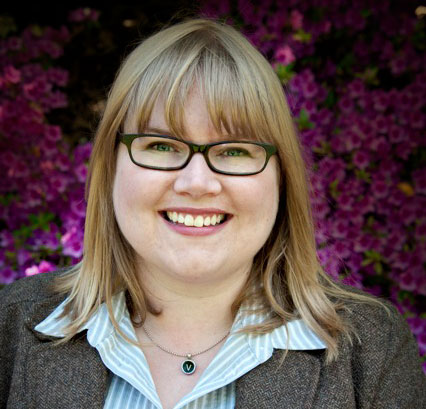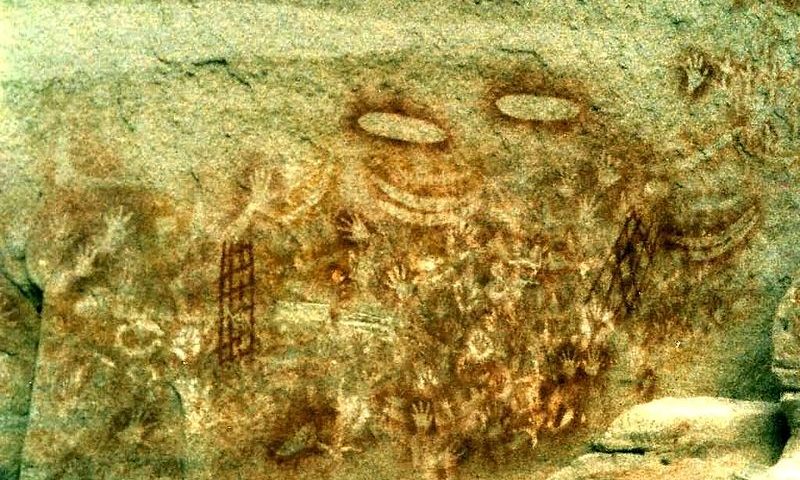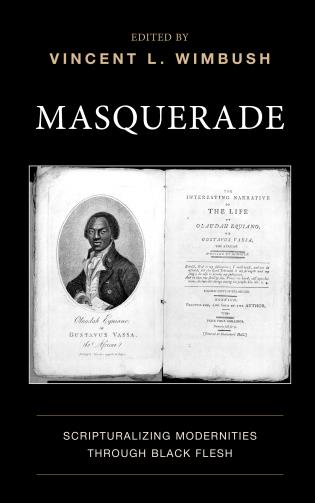
Katie Van Heest – Reflections on the ISS – Ten Years In
July 9, 2016
Announcing the First Annual Meeting of the ISS
July 9, 2016Richard Newton – Reflections on the ISS – Scriptures at Its Root

Hello, and welcome to our continuing series, “Reflections on the ISS.” This series features personal essays and informal ruminations on the past, present and future work of the ISS. While all of the posts have been written by scholars and intellectuals of a variety of critical orientations and professional positions, their concern for the ways in which the study of “religion” has been framed in the academy and the media unites them.
Each of them has found common cause in excavating the work that we make scriptures do for us.
Critical Comparative Scriptures at Its Root
 My doctoral research has focused on the concept of “roots” or the essentializing ways humans know and are known by each other. This interest has been shaped by the problem of comparison as investigated in an ISS-inflected graduate education. To me, such a critical conversation is at the root of the ISS’ excavation of discourse and power.
My doctoral research has focused on the concept of “roots” or the essentializing ways humans know and are known by each other. This interest has been shaped by the problem of comparison as investigated in an ISS-inflected graduate education. To me, such a critical conversation is at the root of the ISS’ excavation of discourse and power.
In my capacity as a student and research assistant, I have observed three related yet distinct approaches to comparison in the critical study of scriptures: one, comparison as a regretful legacy; two, comparison as a foundational intellectual practice; three, comparison as a critical challenge. Going forward, I suggest that we hyperlink the institute’s many projects in the spirit of collaborative research.
Comparison as a Regretful Legacy
With its privileging of historically-marginalized peoples, the ISS has been particularly sensitive to the role of comparison in traditions of domination. It takes seriously the struggle to distinguish the critical employ of comparison from that of, for instance, the history of Western colonial ethnography. Andrea Smith, in the essay “Native Evangelicals and the Scriptural Ethnologies,” reminds us to be careful of the
never-ending quest to “know” the Other…to fully understand, to “know” Native peoples, is the manner in which the dominant society gains a sense of mastery and control over them. As a result, researchers have not often asked the questions, do Native people want others to know about them? Or, do Native communities find this research helpful?1
Patience and reflection are more than just intellectual platitudes; they are essential to the task of comparison. Smith models this by treating her informants not as “ethnographic objects,” contextualized with “life stories,” bur rather as “theorists in their own right,” as “primary texts for the development of Native evangelical theory.”2 She likens this privileging to the way a scholar “would cite Foucault or Derrida without telling their biographies” or framing them within the appendices.3
Comparison as a Foundational Intellectual Practice
There is also a presumption that comparison is key to the deceptively simple issues that drive our inquiry. We draw out similarities and differences across different scriptural domains, so that by testing our analogies, we might better understand how and what humans make scriptures mean. Among other places, I have seen evidence of this in Sze-Kar Wan’s study, “Signification as Scripturalization: Communal Memories Among the Miao and in Ancient Jewish Allegorization.” Despite these communities’ temporal and cultural differences, he concludes that “one principle of unity is found in the inseparable relation between memories and “scriptures”… [the] return time and time again to some canonical story or text that defines for the community its central core of self-understanding.”4 The challenge of likening different worlds cross-culturally and historically enables us to derive more apt terms with which to speak about the human.
Comparison as a Critical Challenge
Although “scriptures” frequently insist upon unity or universality, the comparative study of them provides evidence of the intrinsically polyvocal nature of their discourse. As Joe Parker notes about modern “ontological imperialism,” scriptures “may be reconstituted in ways that refuse appropriation into this unfortunate heritage as an ethics and politics of accountability to the Others of modernity.”5 Although the most successful scriptures teach us “to take their word for it,” comparison orients us toward them as artifacts of creativity, competition, and strife.
Knowing the ISS’s Roots
Between the ISS’s anthologies, the Signifying (on) Scriptures monograph series, and Finding God in the City of Angels, the past ten years have given students of the Critical Comparative Scriptures program much to discuss. The problem of comparison manifests in all of these projects. When we would convene, the conversation turned in such a way that no one remained comfortable operating under a single facet of comparison. The politics of ethnography are questioned. The thought experiment is delimited. The history is complicated.
In the institute’s Tenth Anniversary Celebration, concern was expressed that were our live programming to end, the ISS would not be the ISS.6 I understand this sentiment, but my ISS-inflected education leads me to a different interpretation of the moment. This is a great opportunity to hyperlink the results of the last ten years. With the increased digitization of ISS scholarship, the information is out there in a compelling and accessible manner.7 Perhaps we can use the website to show the interstices of the projects, to surface their confluence and convergence. I dare say that, at its root, the ISS has always been a network of scholars working to compare difference differently. Think what we might learn by further relating these works to one another. So let us find ways to better leverage the Internet that we might convey a message central to our work—the need for a robust approach to comparison, its problems, and its potential.
1. Andrea Smith, “Native Evangelicals and Scriptural Ethnologies,” in MisReading America: Scriptures and Difference, ed. Vincent L. Wimbush (New York: Oxford University Press, 2013), 26.
2. Smith, “Native Evangelicals and Scriptural Ethnologies,” MisReading America, 30.
3. Ibid.
4. Sze-Kar Wan, “Signification as Scripturalization: Communal Memories Among the Miao and in Ancient Jewish Alleogization,” in Theorizing Scriptures: New Critical Orientations to a Cultural Phenomenon (New Brunswick, NJ: Rutgers University Press, 2008), 105.
5. Joe Parker, “Racial and Colonial Politics of the Modern Object of Knowledge: Cautionary Notes on “Scripture,” Theorizing Scriptures, 268.
6. By live programming, I am referring to events such as the Distinguished Speaker Series, the Brown Bag Lunch Discussion Series, national and international transdisciplinary conferences, documentary film screenings, book forums, and seminars.
7. Many of the volumes in the Signifying (on) Scriptures series and other publications are available as e-books. The documentary, Finding God in City of Angels was filmed in high-definition. And many of our live events can be streamed from the ISS website.
Richard Newton, PhD, is Assistant Professor of Religious Studies. His scholarship focuses on the anthropology of scriptures. Newton examines the ways humans use their cultural productions to make difference and make a difference in the world. With interests in theory and method in the study of religion, he aims to raise the discourse on American identity politics.



